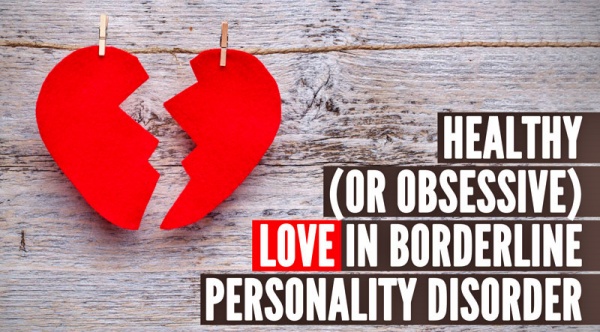Understanding the Fine Line Between Real Love and Obsessive Love Disorder: Unraveling the Complexities of Emotional Attachments
Below we have delved into the hidden realms of Obsessive Love Disorder (OLD) and shed light on the signs and symptoms associated with this complex condition. Whether you suspect someone close to you may be struggling with OLD, or you're curious to learn more about this psychological phenomenon, read on to gain valuable insights.Obsessive Love Disorder (OLD) is a term that has gained significant attention in recent years, captivating the minds of both psychologists and individuals who have experienced intense romantic relationships. While many are intrigued by the idea of an all-consuming, passionate love, there is a fine line between healthy infatuation and an unhealthy obsession. In this article, we will delve into the reality of Obsessive Love Disorder, addressing its existence, symptoms, and the duration of its effects.
Discover the Most Sensual Sun Signs That Are Irresistibly Hot in the Bedroom
Unveiling the Reality of Obsessive Love Disorder: A Closer Look into its Symptoms and Patterns
Before exploring the intricacies of Obsessive Love Disorder, it is vital to establish its legitimacy. While not officially recognized as a standalone diagnosis in the Diagnostic and Statistical Manual of Mental Disorders (DSM-5), psychologists have researched and discussed the phenomenon extensively. It is believed to be closely related to other recognized mental health conditions, such as obsessive-compulsive disorder (OCD), borderline personality disorder (BPD), and love addiction.
1. Constant Intrusive Thoughts:
One of the hallmarks of Obsessive Love Disorder is the presence of incessant, intrusive thoughts about the person one is infatuated with. Individuals experiencing OLD often find themselves incapable of controlling their thoughts, which persistently revolve around their romantic interest. These thoughts may be extremely positive or negative, but they significantly disrupt daily routines and the ability to concentrate.
2. Inability to Accept Rejection:
Individuals with OLD find it exceptionally challenging to accept rejection or separation. They may become fixated on rekindling the relationship or getting back their loved one, often resorting to extreme behaviors to achieve this, even if it becomes harmful or dangerous for themselves or others involved.
3. Extreme Jealousy and Possessiveness:
Obsessive Love Disorder is frequently characterized by intense jealousy and possessiveness. The person struggling with OLD may constantly monitor their partner's activities, interrogate them about their whereabouts, and feel threatened by anyone perceived as a potential threat to their relationship. This possessiveness may go beyond healthy boundaries, causing strain and discomfort within the relationship.
4. Isolation from Other Relationships:
Individuals affected by OLD frequently prioritize their romantic interest above all other relationships and activities. As a result, they may begin neglecting friendships, familial bonds, and personal hobbies, becoming increasingly isolated from their previous social circle. This isolation often fuels their obsessive behavior, exacerbating the overall disorder.
5. Unwanted Compulsive Actions:
A person with Obsessive Love Disorder may exhibit repetitive and unwanted compulsive actions related to their infatuation. These actions can manifest as excessive calling or texting, incessant surveillance, stalking, or bombarding the person of interest with messages or gifts. Such behaviors are distressing for both the person with OLD and the object of their affection.
6. Extreme Emotional Highs and Lows:
Those with OLD often experience extreme emotional highs and lows, primarily depending on their perception of the status of their relationship. A small change in their romantic interest's behavior, such as a missed phone call, can send them spiraling into intense anxiety, depression, or even fits of rage. These emotional rollercoasters are characteristic of this disorder and contribute to its complexity.Obsessive Love Disorder, although rare, can have profound consequences for individuals who experience it and those around them. By recognizing the signs and symptoms, we can promote early intervention and awareness. If you or someone you know exhibits signs of OLD, seeking professional help is crucial for a healthier outcome. Remember, understanding and empathy play a significant role in aiding those affected by this challenging disorder.
How Real is Obsessive Love Disorder? Diving into the Science and Psychology behind this Complicated Condition
Individuals with Obsessive Love Disorder often exhibit numerous telltale signs. They experience an unhealthy fixation on their partner, resulting in intrusive thoughts, extreme jealousy, possessiveness, and an overwhelming desire to control their loved one's every move. Such individuals may engage in stalking behaviors, constantly checking their partner's social media profiles or demanding constant updates on their whereabouts. These behaviors stem from an intense fear of abandonment, leading them to employ tactics that may alienate their partner further.
Obsessive Love Disorder Debunked: Understanding the Truth behind its Existence and Longevity
While it is difficult to determine precisely how long Obsessive Love Disorder lasts, it is widely accepted that it can persist for a considerable period. The duration may vary for each individual and largely depends on various factors, including their willingness to seek help, the severity of their symptoms, and their support system. Without intervention, Obsessive Love Disorder can lead to chronic emotional distress, damage to both individuals' mental health, and, in some cases, even physical violence.
Untangling the Web of Obsessive Love Disorder: Understanding the Treatment Options
Treatment for Obsessive Love Disorder generally involves a combination of therapy and medication. Cognitive-behavioral therapy (CBT) can help individuals identify and challenge irrational thoughts, modify their destructive behaviors, and develop healthier ways of relating to their romantic partners. Additionally, therapies such as dialectical behavior therapy (DBT) and psychodynamic therapy may provide individuals with the tools needed to regulate their emotions effectively and understand the underlying causes of their obsession.
Obsessive Love Disorder (OLD) is a complex psychological condition that interferes with an individual's ability to have healthy, balanced relationships. When left untreated, it can spiral into emotional turmoil, affecting various aspects of one's life. Fortunately, there are effective treatment options available that can help individuals suffering from Obsessive Love Disorder regain control of their emotions and build healthier connections with their loved ones. In this article, we will delve into the treatment methods for Obsessive Love Disorder, shedding light on these therapeutic approaches that offer hope and healing.
1. Cognitive Behavioral Therapy (CBT):
Cognitive Behavioral Therapy, or CBT, is one of the most common and effective treatment approaches used for Obsessive Love Disorder. By focusing on changing distorted thinking patterns and maladaptive behaviors, CBT helps patients develop healthy coping mechanisms and encourages the reconstruction of realistic thoughts and expectations within relationships. Through regular sessions with a trained therapist, individuals with OLD can gradually challenge their irrational beliefs, develop self-awareness, and learn healthier ways to navigate their feelings and reactions.
2. Dialectical Behavior Therapy (DBT):
Dialectical Behavior Therapy is another valuable treatment option for Obsessive Love Disorder. Originally developed to assist individuals with Borderline Personality Disorder, DBT has proven to be effective in treating various emotional dysregulation disorders, including OLD. Through a combination of individual counseling, group therapy, and skill-building exercises, DBT equips patients with the tools to manage intense emotions, improve impulse control, and build healthier relationship dynamics. This comprehensive approach fosters personal growth, self-acceptance, and effective communication.
3. Medication:
While medication is not a standalone treatment for Obsessive Love Disorder, certain medications may be prescribed to alleviate specific symptoms associated with the disorder. For instance, anti-anxiety medications or selective serotonin reuptake inhibitors (SSRIs) may be used to manage anxiety and depression often present in individuals with OLD. Prescription medication should always be administered under the guidance of a qualified healthcare professional, as it is crucial to tailor the treatment plan to the individual patient's needs.
4. Support Groups and Psychoeducation:
Support groups and psychoeducation play an essential role in the treatment and recovery process for individuals with Obsessive Love Disorder. Engaging in a community of individuals who understand their experiences can provide a sense of validation, support, and empathy. Psychoeducation programs can also help patients understand the root causes and underlying factors contributing to their obsessive love patterns, thereby assisting them in developing healthier relationship dynamics and coping strategies.
Obsessive Love Disorder treatment requires a multifaceted approach to address the complex emotions and behaviors associated with the disorder. Combining therapeutic interventions such as Meditation, Yoga, Pranayama, Mantra Chanting, Cognitive Behavioral Therapy and Dialectical Behavior Therapy with medication (when necessary) and participation in support groups can immensely benefit individuals struggling with OLD. It is important to remember that treatment success is highly individualized, and seeking professional help is crucial in crafting a personalized treatment plan that suits their unique needs. By taking the first step towards intervention, those with Obsessive Love Disorder can pave the way for healing, growth, and the establishment of fulfilling relationships based on mutual respect and emotional well-being.
In some instances, the person with Obsessive Love Disorder may benefit from medication to manage underlying psychiatric conditions, such as anxiety or depression. However, medication alone is rarely considered a comprehensive solution for this disorder, as the root causes are often deeply ingrained in the individual's thoughts and behaviors.
Lasting Effects of Obsessive Love Disorder: Exploring the Impact on Individuals and Relationships
While obsessive love may be portrayed dramatically in movies and novels, the reality of Obsessive Love Disorder is far more complex and destructive. It is crucial to recognize the signs and symptoms of this disorder to ensure early intervention and prevent further harm to individuals involved. By seeking professional help, individuals can embark on a journey to recovery, learning healthier ways to love and be loved, fostering mutual respect, and embracing a balanced approach to relationships.
In conclusion, the reality of Obsessive Love Disorder cannot be ignored. Although not officially classified as a distinct disorder, its existence is evident in the lives of those who struggle with unhealthy obsessions and destructive patterns of behavior. Understanding the signs, seeking help, and committing to therapy are vital steps in overcoming this disorder and fostering healthier relationships. With the right support and intervention, individuals can break free from the chains of obsession and experience fulfilling and genuine love. Unraveling the complexities of real love and Obsessive Love Disorder can be a profound journey of self-discovery and growth. By understanding the fine line that separates these two realms, we can navigate our own relationships with wisdom and compassion. Let us strive for love that liberates, uplifts, and nourishes the soul, rather than succumbing to the chains of obsession. Remember, a healthy attachment is the catalyst for personal happiness and harmonious connections that stand the test of time.
Signs of Toxic Love Relationship
I Love You Poetry For Him & Her








0 Comments